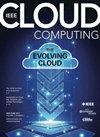DeTrust-FL: Privacy-Preserving Federated Learning in Decentralized Trust Setting
Q1 Computer Science
引用次数: 7
Abstract
Federated learning has emerged as a privacy-preserving machine learning approach where multiple parties can train a single model without sharing their raw training data. Federated learning typically requires the utilization of multi-party computation techniques to provide strong privacy guarantees by ensuring that an untrusted or curious aggregator cannot obtain isolated replies from parties involved in the training process, thereby preventing potential inference attacks. Until recently, it was thought that some of these secure aggregation techniques were sufficient to fully protect against inference attacks coming from a curious aggregator. However, recent research has demonstrated that a curious aggregator can successfully launch a disaggregation attack to learn information about model updates of a target party. This paper presents DeTrust-FL, an efficient privacy-preserving federated learning framework for addressing the lack of transparency that enables isolation attacks, such as disaggregation attacks, during secure aggregation by assuring that parties’ model updates are included in the aggregated model in a private and secure manner. DeTrust-FL proposes a decentralized trust consensus mechanism and incorporates a recently proposed decentralized functional encryption scheme in which all parties agree on a participation matrix before collaboratively generating decryption key fragments, thereby gaining control and trust over the secure aggregation process in a decentralized setting. Our experimental evaluation demonstrates that DeTrust-FL outperforms state-of-the-art FE-based secure multi-party aggregation solutions in terms of training time and reduces the volume of data transferred. In contrast to existing approaches, this is achieved without creating any trust dependency on external trusted entities.DeTrust-FL:分散信任环境下的隐私保护联邦学习
联邦学习已经成为一种保护隐私的机器学习方法,其中多方可以在不共享原始训练数据的情况下训练单个模型。联邦学习通常需要利用多方计算技术,通过确保不受信任或好奇的聚合器不能从训练过程中涉及的各方获得孤立的回复,从而防止潜在的推理攻击,从而提供强大的隐私保证。直到最近,人们还认为其中一些安全聚合技术足以完全防止来自好奇聚合器的推理攻击。然而,最近的研究表明,好奇的聚合器可以成功地发起分解攻击,以了解目标方的模型更新信息。本文提出了一种有效的保护隐私的联邦学习框架trust - fl,它通过确保各方的模型更新以私有和安全的方式包含在聚合模型中,来解决在安全聚合期间导致隔离攻击(如分解攻击)缺乏透明度的问题。DeTrust-FL提出了一种去中心化的信任共识机制,并结合了最近提出的去中心化功能加密方案,在该方案中,各方在协作生成解密密钥片段之前就参与矩阵达成一致,从而在去中心化设置下获得对安全聚合过程的控制和信任。我们的实验评估表明,就训练时间和减少传输的数据量而言,DeTrust-FL优于最先进的基于fe的安全多方聚合解决方案。与现有方法相比,实现这一目标无需对外部可信实体创建任何信任依赖。
本文章由计算机程序翻译,如有差异,请以英文原文为准。
求助全文
约1分钟内获得全文
求助全文
来源期刊

IEEE Cloud Computing
Computer Science-Computer Networks and Communications
CiteScore
11.20
自引率
0.00%
发文量
0
期刊介绍:
Cessation.
IEEE Cloud Computing is committed to the timely publication of peer-reviewed articles that provide innovative research ideas, applications results, and case studies in all areas of cloud computing. Topics relating to novel theory, algorithms, performance analyses and applications of techniques are covered. More specifically: Cloud software, Cloud security, Trade-offs between privacy and utility of cloud, Cloud in the business environment, Cloud economics, Cloud governance, Migrating to the cloud, Cloud standards, Development tools, Backup and recovery, Interoperability, Applications management, Data analytics, Communications protocols, Mobile cloud, Private clouds, Liability issues for data loss on clouds, Data integration, Big data, Cloud education, Cloud skill sets, Cloud energy consumption, The architecture of cloud computing, Applications in commerce, education, and industry, Infrastructure as a Service (IaaS), Platform as a Service (PaaS), Software as a Service (SaaS), Business Process as a Service (BPaaS)
 求助内容:
求助内容: 应助结果提醒方式:
应助结果提醒方式:


